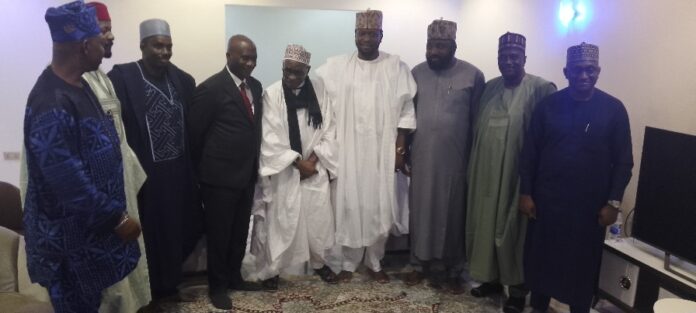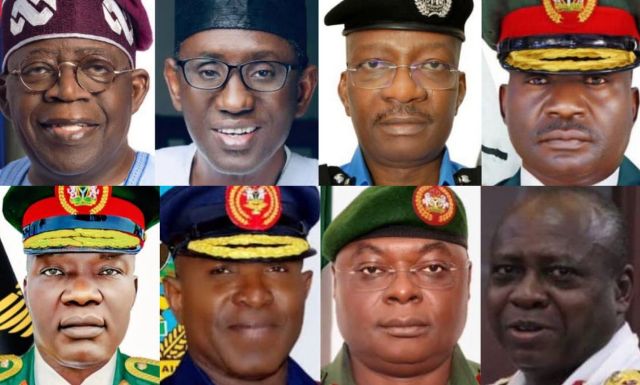
The chairman of the Northern Elders Forum (NEF), Prof Ango Abdullahi, has endorsed the ongoing campaign by some national assembly lawmakers for Nigeria’s return to the parliamentary system of government.
Recall that a group of 60 members of the house of representatives have recently called for the return of the country to the parliamentary system which was practised in the First Republic.
The lawmakers had sponsored the constitutional alteration bill seeking to amend the constitution to abolish the presidential system and reintroduce the parliamentary system.
Speaking yesterday while hosting members of the house of representatives parliamentary system caucus in Abuja, the NEF chairman said he endorsed the proposal 100 per cent.
He stressed that parliamentary system of government as practiced in 1963 was not given sufficient time to mature.
Abdullahi who was a member of the First Republic Parliament maintained that the parliamentary system of government worked for all and sundry, posited that the current Presidential system of government has failed to yield desired results over the past 24 years.
“If you are talking of failure of the system, it’s totally unfair to say that the parliamentary system failed in Nigeria. It has not. Only that it has not been given sufficient time.
“So, my personal position is that, I’m 100 percent against the presidential system of government, it’s an unsuitable system not only for Nigeria, but any country that is in this reckless, greedy western world. Because the democracy the western world is trying to force down the throat of every nation in the world is to serve their interest. And check honestly, academically, materially and so on, see what happened since 1960 till date.
“For me, if I’m going to react to your visit, I’ll react in two ways. The first level is my own personal conviction. I’m a product of the first republic and I cherished being that product, as a teacher who marks exams from A1 to failure, I’ll mark the Pioneer Leaders as A1, up to the present leadership F10.
“So when the military came and insisted that we should abandon what was kicked out in 1966, I think was the first major mistake this country ran into up till now,” he said.
He added “the presidential system is not a suitable system. This is my personal opinion.”
Abdullahi also argued that the choice of leadership has been the bane of Nigeria’s problem, adding that the parliamentary system worked for Nigeria, despite the fact that the country was not rich.
“But many of us went to school that time. Free education, even in the northern region, those of us who went to elementary school, free; secondary school free; university free; without oil, groundnut, cotton, cocoa, palm produce but what made the difference with the little trickling in, going into the hands of good leaders. They tried to manage it as well as they could,” he declared.
He said the current system has not succeeded in terms of moving the country forward and commended the lawmakers for championing the campaign for a return to the parliamentary system of government while pledging his unflinching support for the actualisation of the initiative.
Earlier in his remarks, Mr Wale Raji (APC, Lagos) who led the caucus for the visit, stated that the cost of governance and election is higher under the presidential system of government than the parliamentary system of government.
“The government is closer to the people and accountable. We are all aware of the fact that the Prime Minister is from the parliament and there’s regular interaction and it promotes accountability and the cost of running our elections, if you look at since 1999, how much the presidential election… apart from the individual running for the position, the cost to the country but under the parliamentary that will be drastically reduced,” he said.
For his part, the spokesperson for the group, Mr Abdulsamad Dasuki said: “Part of our proposals we have one bill for local government, one for the state, and one for federal. And in one of our proposals…we would like to kick start with full autonomy and implementation of local government itself, so that we can be well-guided.”
























































